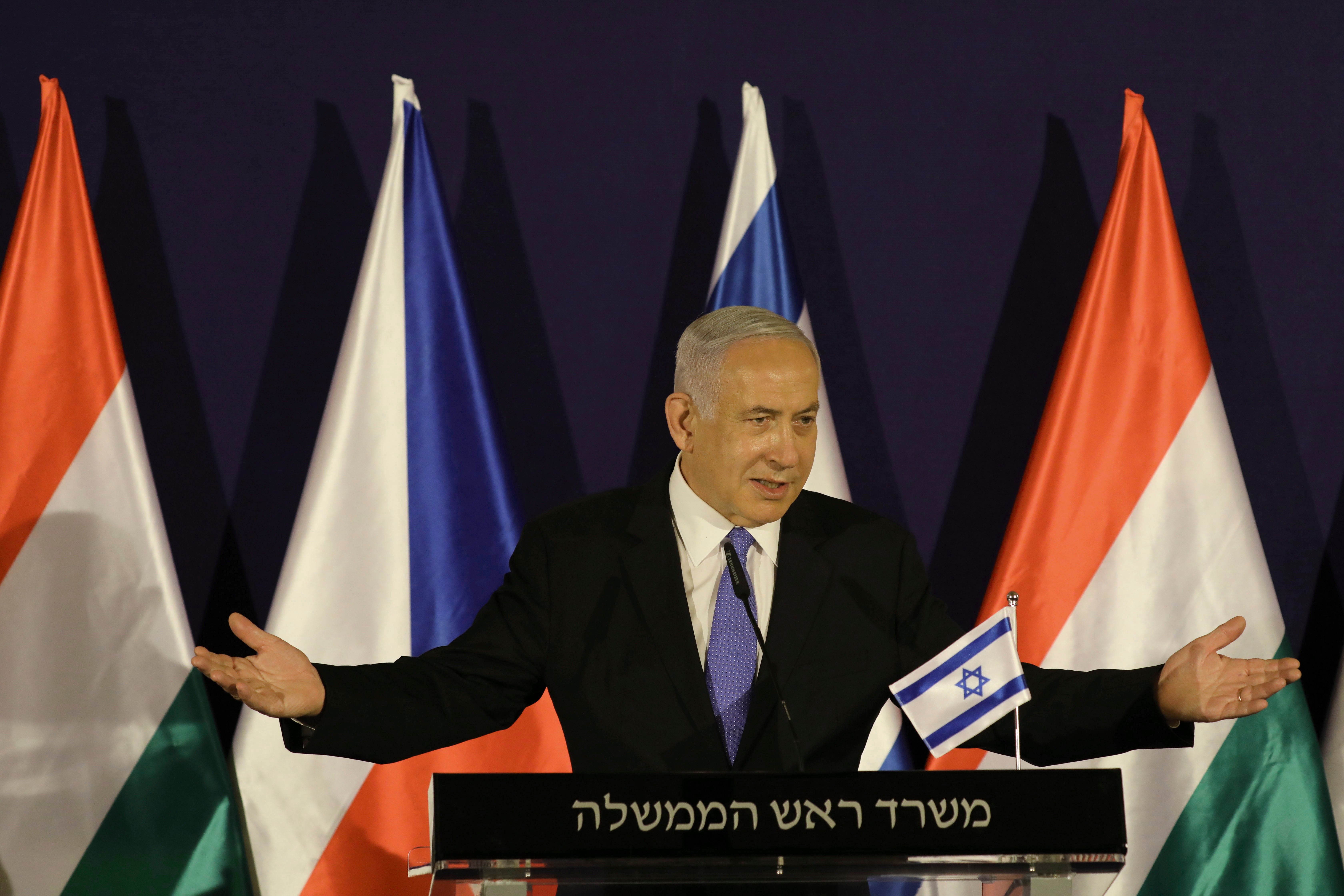Israeli PM avoided Saudi airspace because of Houthi missiles
Israeli Prime Minister Benjamin Netanyahu says he was deterred from flying to the United Arab Emirates through Saudi Arabian airspace last week because of the threat of missile fire from Iranian proxies in Yemen

Your support helps us to tell the story
From reproductive rights to climate change to Big Tech, The Independent is on the ground when the story is developing. Whether it's investigating the financials of Elon Musk's pro-Trump PAC or producing our latest documentary, 'The A Word', which shines a light on the American women fighting for reproductive rights, we know how important it is to parse out the facts from the messaging.
At such a critical moment in US history, we need reporters on the ground. Your donation allows us to keep sending journalists to speak to both sides of the story.
The Independent is trusted by Americans across the entire political spectrum. And unlike many other quality news outlets, we choose not to lock Americans out of our reporting and analysis with paywalls. We believe quality journalism should be available to everyone, paid for by those who can afford it.
Your support makes all the difference.Israeli Prime Minister Benjamin Netanyahu said he was deterred from flying to the United Arab Emirates through Saudi Arabian airspace last week because of the threat of missile fire from Iranian proxies in Yemen
Netanyahu, whose comments came Saturday, had called off a visit to the Emirates last week over a spat with neighboring Jordan which had temporarily closed its airspace to the Israeli prime minister's flight.
But rather than bypass Jordanian airspace and take a more southerly route across Saudi skies, Netanyahu told Israel's Channel 13 “there were also problems a week ago in the skies of Saudi Arabia,” referring to recent missile attacks by Yemen's Houthi rebels.
Netanyahu did not elaborate, nor did he say his plane was targeted by the Iran-backed Houthis.
Yemen’s Houthi rebels, who control the capital and much of the country’s north, have escalated their cross-border attacks on critical Saudi infrastructure in recent weeks, crashing bomb-laden drones and missiles into the kingdom’s Patriot missile batteries and revealing gaps in the country’s defenses.
Last week, missiles and drones hit one of the world’s largest oil shipping ports and halted air traffic toward the international airport in the port city of Jiddah. While Houthi-claimed attacks on Saudi Arabia rarely cause substantial damage, such strikes have roiled the world economy and raise the risk of a disruption in global oil supplies.
Netanyahu was slated to make the first official visit by an Israeli leader to the United Arab Emirates, half a year after the countries established formal relations. He had hoped to use the audience with the UAE’s crown prince to boost his reelection campaign less than two weeks before Israel's March 23 parliamentary elections.
The Prime Minister’s Office said it had difficulties coordinating the flight over Jordanian airspace after Jordan’s crown prince canceled a visit to the Al-Aqsa Mosque in Jerusalem, a sensitive holy site under Jordanian custodianship, due to disagreements over security arrangements.
The prime minister insisted that relations between the two countries were positive, adding that “Jordan needs good relations with us no less than we need good relations with Jordan.”